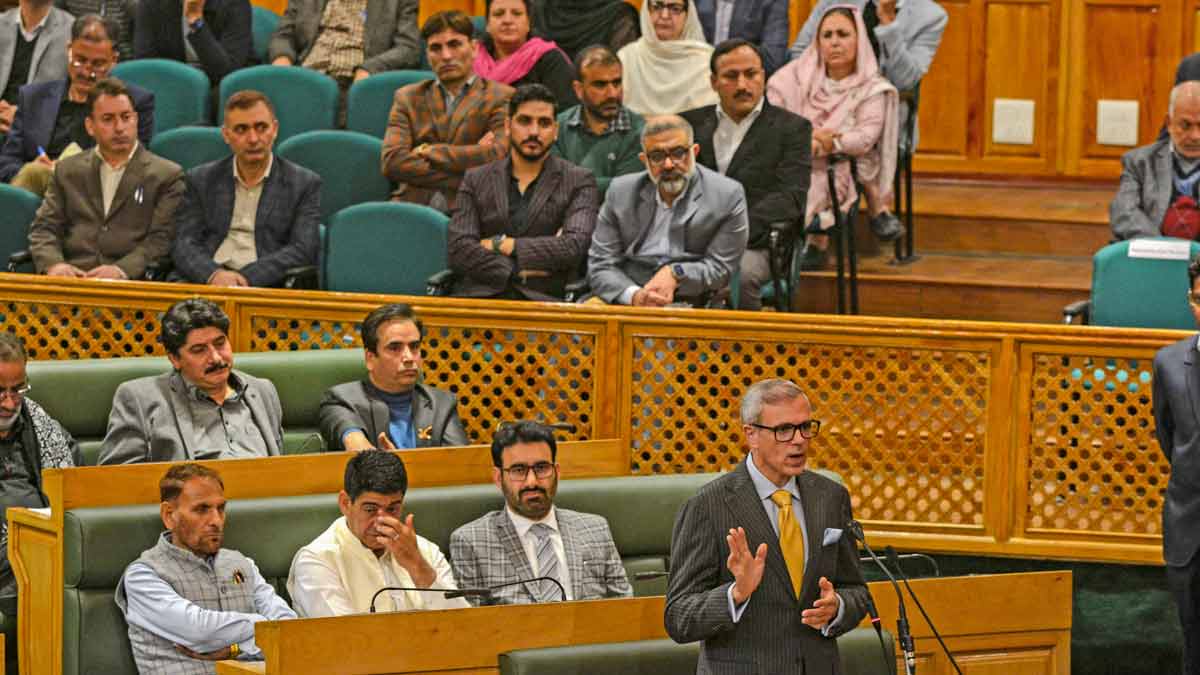Contentious Issues Take Center Stage in the Second Leg of the Assembly Session
Srinagar, 07 April 2025: A Session Packed with Controversy
The second leg of the Jammu and Kashmir Assembly session, set to begin on Monday, promises to be a stormy affair as legislators prepare to tackle a range of contentious issues. From the Waqf (Amendment) Bill to the restoration of statehood and a proposed liquor ban, the agenda is packed with debates that could shape the region’s political and social landscape.
Waqf Bill Sparks Outrage
One of the most polarizing topics on the agenda is the Waqf (Amendment) Bill, which has already received Presidential assent. The bill has drawn sharp criticism from opposition parties and community leaders, who argue that it undermines the autonomy of Waqf properties and disproportionately affects the Muslim population in the Union Territory.
A private member’s resolution opposing the bill is scheduled for debate, with legislators from the National Conference (NC) and its allies expected to lead the charge. “This bill is an attack on the rights of the Muslim community and must be resisted at all costs,” said an NC spokesperson.
Statehood Restoration: A Lingering Demand
The restoration of statehood to Jammu and Kashmir remains a key issue for many legislators. Several resolutions calling for statehood are expected to be introduced during the session, reflecting widespread public sentiment on the matter.
Independent MLA Shabir Ahmad Kullay, who plans to move one such resolution, stated, “Statehood is not just a political demand; it is essential for restoring the dignity and democratic rights of the people of Jammu and Kashmir.”
The NC-led government has also indicated its support for statehood, but opposition parties have accused it of failing to take a strong enough stand against the central government.
Liquor Ban: A Cultural and Economic Debate
A proposed ban on alcohol in Jammu and Kashmir has sparked a heated debate among legislators. While proponents of the ban argue that it is necessary to preserve the region’s cultural and religious values, critics warn that such a move could negatively impact the tourism-dependent economy.
The bill, introduced by PDP MLA Fayaz Ahmad Mir, calls for a complete prohibition on the sale, purchase, and consumption of alcohol in the Union Territory. “Alcohol consumption is eroding our cultural fabric and must be addressed urgently,” Mir stated.
However, NC legislators face a political dilemma, as most of their constituencies are in Muslim-majority areas where support for the ban is strong. At the same time, the party is wary of the economic repercussions of such legislation.
Tensions Over Administrative Transfers
The recent transfer of 48 Jammu and Kashmir Administrative Service (JKAS) officers by Lieutenant Governor Manoj Sinha has added to the friction between the elected government and the Raj Bhavan. The NC-led coalition has accused the LG of overstepping his jurisdiction, while Sinha has defended his actions, stating, “I know my limits.”
The transfers are expected to be a major flashpoint during the session, with opposition parties planning to raise the issue aggressively. “New Delhi must respect the people’s mandate and stop interfering in matters that fall under the purview of the elected government,” said an NC leader.
What to Expect
The session, which was adjourned for 12 days for Eid and Navratra, is scheduled to conclude on April 9. Private members’ bills, including those related to the liquor ban and statehood restoration, are slated for discussion on April 8. With tensions running high, the Assembly is likely to witness heated exchanges and passionate debates.
Key Takeaways
- Waqf Bill – Opposition parties are gearing up to challenge the bill, citing its impact on minority rights.
- Statehood Restoration – Resolutions calling for statehood are expected to dominate discussions.
- Liquor Ban – The proposed ban has sparked a cultural and economic debate among legislators.
- Administrative Transfers – The controversy over JKAS officer transfers adds to the friction between the government and the LG.



